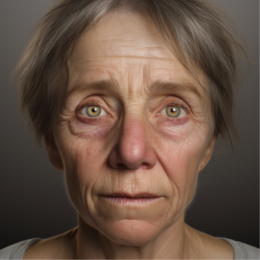Unpacking OCD: Spotlight on Symptoms & Recovery

We thought you might like these, too:
- Unlocking OCD: Exploration of Obsessive-Compulsive Disorder
- 4 Types of OCD: Understanding Obsessive-Compulsive Disorder
- The Root Causes of Anxiety: Everything You Should Know
- How to Help Someone with Anxiety Attacks: Understanding, Recognizing, and Assisting
Obsessive-Compulsive Disorder, commonly known as OCD, is a mental health condition that affects countless individuals worldwide. It’s characterized by persistent, unwanted thoughts (obsessions) and repetitive behaviors or rituals (compulsions). But what really goes on in the mind of someone with OCD? Let’s delve deeper.
Definition of OCD
OCD isn’t just about liking things neat or being a perfectionist. It’s a chronic mental health disorder marked by patterns of unwanted or intrusive thoughts and repetitive behaviors or mental acts. These patterns can dominate a person’s life, making even simple tasks seem insurmountable. It’s estimated that millions worldwide suffer from this condition, making it a significant public health concern.
Signs and Symptoms of OCD
Obsessive-Compulsive Disorder manifests in a variety of ways, but at its core, it revolves around obsessions and compulsions. Understanding these symptoms is crucial for early detection and intervention.
Obsessions
Obsessions are persistent, intrusive thoughts, images, or urges that cause significant distress. They’re not merely excessive worries about real-life problems but are often irrational. These unwanted thoughts can dominate an individual’s mind, leading to anxiety and discomfort. Common obsessions include:
- Fear of germs or contamination: This can lead to avoiding public places, fearing the spread of disease or dirt.
- Doubts about having completed a task: Wondering, “Did I lock the door?” or “Did I turn off the stove?” lead to repeated checks.
- Aggressive or horrific thoughts: These can involve causing harm to oneself or others, even if the person has no intention of acting on these thoughts.
- Need for symmetry or exactness: A person might feel the need to ensure objects are placed in a particular order or pattern.
- Sexual or religious obsessions: Intrusive, inappropriate, or taboo thoughts or fears of committing sins.
Compulsions
Compulsions are repetitive behaviors or mental acts that an individual feels driven to perform in response to an obsession. They’re intended to prevent or reduce the distress associated with the obsession, but they often end up being excessive and not realistically connected to the problem they’re meant to address. Examples include:
- Excessive hand washing or cleaning: This can be a response to the fear of germs. Some individuals might wash their hands dozens of times a day until they’re chapped and bleeding.
- Repeatedly checking things: This can be due to doubts about completing a task. An individual might check if they’ve locked their doors multiple times before they feel satisfied.
- Counting or tapping objects: This can be a way to ensure order or prevent a feared event or situation.
- Ordering and arranging things: Often done in a particular manner, like symmetrically, to reduce discomfort from the need for symmetry.
- Mental rituals: Such as praying, counting, or repeating words silently to reduce anxiety from specific obsessions.
The Science Behind OCD
Brain Function and Structure
OCD might be linked to abnormalities in certain brain structures. The orbitofrontal cortex, anterior cingulate cortex, and basal ganglia have shown differences in those with OCD, suggesting a neurological basis. These areas are responsible for behavior regulation, decision-making, and response to stress.
Neurotransmitters

Serotonin, a neurotransmitter, plays a pivotal role. Imbalances in serotonin might contribute to OCD, explaining why SSRIs, which affect serotonin levels, can be effective treatments4. Dopamine and glutamate are also being studied for their potential roles.
Survey
What Causes OCD?
The cause of OCD is multifaceted:
- Genetics: Twin and family studies suggest a genetic component2.
- Brain Chemistry: Imbalances in certain neurotransmitters, especially serotonin, play a role.
- Environment: Traumatic events or infections can trigger OCD symptoms in some.
- Behavioral Factors: Learned behaviors, especially in childhood, can contribute to OCD development6.
Living with OCD
Life with OCD can be challenging:
- Social Isolation: Due to their symptoms, many with OCD avoid social situations.
- Daily Tasks: Simple tasks can become time-consuming rituals.
- Stigma: Misunderstandings about OCD can lead to judgment or dismissal of the condition6. This can further isolate individuals, making them reluctant to seek help.
OCD Treatment Options
Cognitive Behavioral Therapy (CBT)
CBT, especially EX/RP, is the gold standard. It involves confronting obsessions without resorting to compulsions and teaching coping mechanisms. Over time, this can reduce the severity of obsessions and compulsions.
Medication
SSRIs, like fluoxetine, fluvoxamine, and sertraline, are commonly prescribed. For those who don’t respond to traditional treatments, antipsychotic medications might be an option.
Alternative Treatments
Treatments like Deep Brain Stimulation and Transcranial Magnetic Stimulation are being explored for severe cases. These treatments target specific brain areas, potentially reducing OCD symptoms.
Personal Story: Sarah’s Journey with OCD
Sarah’s OCD began in childhood, with rituals like tapping her books repeatedly before reading. As she grew, so did her symptoms. The fear of harming her loved ones led to her avoiding knives. Therapy and medication have been her lifeline, helping her lead a near-normal life. Her story is a testament to the resilience of those with OCD and the importance of seeking help.
Conclusion
Understanding what causes OCD and recognizing what the symptoms of OCD are can be the first step toward seeking help. Early intervention can lead to better outcomes in managing the disorder, so it’s essential to be informed about how to treat OCD effectively.
DID SARAH’S STORY TOUCH A CHORD? HOW HAS OCD AFFECTED YOU OR SOMEONE YOU KNOW? LET’S DISCUSS.





